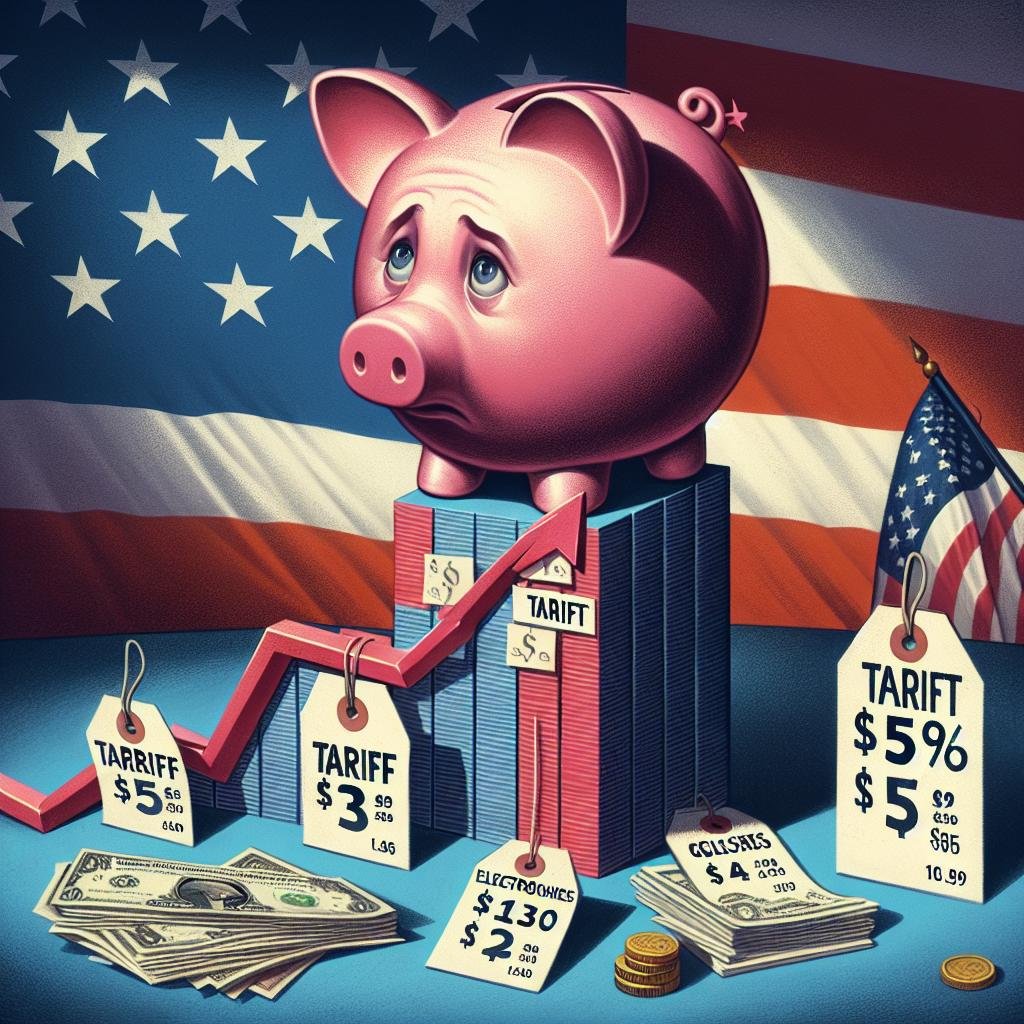
Why Trump’s Tariffs Could Impact Your Wallet
In today’s ever-changing financial landscape, staying informed is more than just a good idea—it’s a necessity. Recent comments from financial experts warn that former President Donald Trump’s proposed tariffs could significantly impact the global economy, making smart money management more critical than ever. If you’re a personal finance enthusiast or just starting your journey toward financial independence, understanding these potential changes is key to protecting and growing your money.
In this post, we’ll explore how proposed tariffs could spark inflation, what that means for your savings, and the practical steps you can take to safeguard your financial future.
What Are Trump’s Proposed Tariffs?
Trump has proposed sweeping tariffs as part of his campaign rhetoric, signaling a return to more aggressive trade policies. Financial experts say that if enacted, these tariffs could include:
- 60%+ tariffs on Chinese imports
- 10% tariff on all other global imports
These tariffs could have massive implications not just for businesses, but also for everyday consumers like you. Experts caution that such policies may disrupt global supply chains, driving up the prices of goods that we all use every day.
How Tariffs Translate to Higher Prices
Why You Should Worry About Inflation
When tariffs are used broadly, companies often pass those additional costs onto consumers. That means the price of everything—clothing, electronics, food, and even cars—could increase significantly. In other words, your dollar won’t stretch as far as it used to.
A chief investment officer quoted in a recent interview explained that these tariffs could “light a fire through the global economy,” causing price surges that affect everyone from Wall Street to Main Street. That’s why financial experts are doubling down on one important message: start saving more—now.
Why Saving Money Matters More Than Ever
Protect Your Buying Power
In an inflationary environment, your money loses value over time. By saving and investing wisely, you can help preserve your buying power. Here’s what you can do today:
- Build a high-yield emergency fund: Keep 3 to 6 months of your living expenses in a high-yield savings account to combat inflation and ensure liquidity.
- Avoid high-interest debt: Credit card balances become more burdensome as inflation rises. Pay off what you can now.
- Invest in inflation-resistant assets: Consider assets like Treasury Inflation-Protected Securities (TIPS), I-bonds, or dividend-paying stocks.
Capitalizing on Compounding
Saving early allows your money to benefit from compound interest. Even during economic uncertainty, consistent savings can reduce stress and create long-term financial security. For personal finance beginners, starting small—$25 or $50 a week—can have a big impact over time.
Additional Strategies to Stay Ahead of Economic Shifts
Track Your Spending
Inflation often creeps in unnoticed. Tracking where your money goes each month can help you identify areas to cut back. Use budgeting apps or spreadsheets to stay accountable.
Buy Smart, Not Cheap
Opt for quality over quantity when inflation is rising. Durable goods may cost more upfront but save you money in the long run. Think bulk groceries, reusable items, and energy-efficient appliances.
Stay Informed & Flexible
Policy changes can happen quickly. Stay up to date with financial news and adjust your strategy as needed. Being proactive rather than reactive puts you in control of your financial future.
Final Thoughts
While proposed tariffs and their economic fallout are still uncertain, one thing is clear: now is the time to prioritize saving and smart money management. Being prepared gives you a cushion against rising costs and the flexibility to navigate financial turbulence.
Whether you’re new to personal finance or looking to optimize your strategy, focusing on savings, budgeting, and smart investing will help you weather any economic storm.
Take the first step today: Explore our free personal finance guides to start mastering your money and building the secure future you deserve.